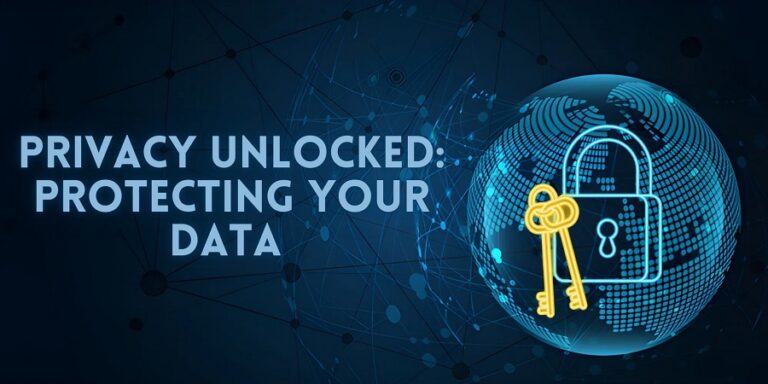In today’s digital age, the internet has become an integral part of our lives, offering convenience, connectivity, and countless opportunities. However, with this increased reliance on online platforms comes the inherent risk of exposing our personal information to potential threats. From social media profiles to online shopping accounts, our digital footprint is extensive, leaving us vulnerable to privacy breaches and data exploitation. Therefore, understanding the importance of online privacy and adopting effective safeguarding measures is paramount in safeguarding our personal information from the internet’s prying eyes.
Understanding Online Privacy
Online privacy refers to the ability of individuals to control the information they disclose about themselves over the internet and how this information is collected, used, and shared by various entities. This encompasses a broad spectrum of data, including but not limited to, personal identifiers (such as name, address, and contact details), browsing history, financial information, and social interactions.
The Importance of Online Privacy
Online privacy protection is not solely about maintaining confidentiality; it’s also about preserving integrity, security, and trust in the digital realm. Here are several reasons why online privacy matters:
Protection from Identity Theft: Sensitive personal information can be exploited by cybercriminals to perpetrate identity theft, leading to financial loss and reputational damage.
Preservation of Reputation: In today’s interconnected world, digital footprints can influence perceptions and judgments. Misuse of personal information can tarnish reputations and adversely impact career prospects and personal relationships.
Safeguarding Confidentiality: Online privacy ensures the confidentiality of sensitive communications, protecting individuals from unwarranted scrutiny and discrimination.
Maintaining Trust: Respecting user privacy fosters trust between individuals and online platforms. Without trust, the digital ecosystem becomes fragmented and less conducive to meaningful interactions.
Threats to Online Privacy
A multitude of threats lurk in the digital landscape, posing risks to our personal information. Some common threats include:
Data Breaches: Hackers exploit vulnerabilities in online systems to gain unauthorized access to databases containing user information, resulting in massive data breaches.
Phishing Attacks: Cybercriminals use deceptive tactics to trick users into divulging personal information, such as passwords or financial details, through fake emails, websites, or messages.
Tracking and Profiling: Online trackers collect user data across websites to create detailed profiles for targeted advertising, compromising user privacy and autonomy.
Social Engineering: Manipulative techniques are employed to extract sensitive information from individuals through psychological manipulation or impersonation.
Safeguarding Your Personal Information
While the internet poses inherent risks to online privacy, there are proactive steps individuals can take to mitigate these threats and safeguard their personal information:
Strong Password Management: Utilize unique, complex passwords for each online account and employ password managers to securely store and manage credentials.
Enable Two-Factor Authentication (2FA): Add an extra layer of security to your accounts by enabling 2FA, which requires a second form of verification, such as a code sent to your mobile device, in addition to your password.
Regular Software Updates: Keep your devices and software up-to-date with the latest security patches to address known vulnerabilities and reduce the risk of exploitation by cyber attackers.
Privacy Settings: Review and adjust the privacy settings on your social media accounts and other online platforms to limit the visibility of your personal information to only trusted individuals or groups.
Use of Virtual Private Networks (VPNs): Employ VPNs to encrypt internet traffic and mask your IP address, enhancing anonymity and protecting sensitive data from interception by malicious actors.
Exercise Caution with Personal Information: Be cautious when sharing personal information online, particularly on public forums and social media platforms, and avoid oversharing unnecessary details.
Beware of Phishing Attempts: Stay vigilant against phishing emails, messages, or calls, and refrain from clicking on suspicious links or providing confidential information to unverified sources.
Regular Data Audits: Periodically review the permissions granted to apps and services on your devices, uninstalling or revoking access to those that no longer serve a legitimate purpose.
Conclusion
In an era where digital interactions pervade every aspect of our lives, safeguarding personal information online is of paramount importance. By understanding the significance of online privacy and implementing effective safeguarding measures, individuals can navigate the digital landscape with confidence and protect themselves against the myriad threats lurking in the virtual realm. Ultimately, preserving online privacy isn’t just about securing data; it’s about upholding fundamental rights to autonomy, security, and dignity in the digital age.
